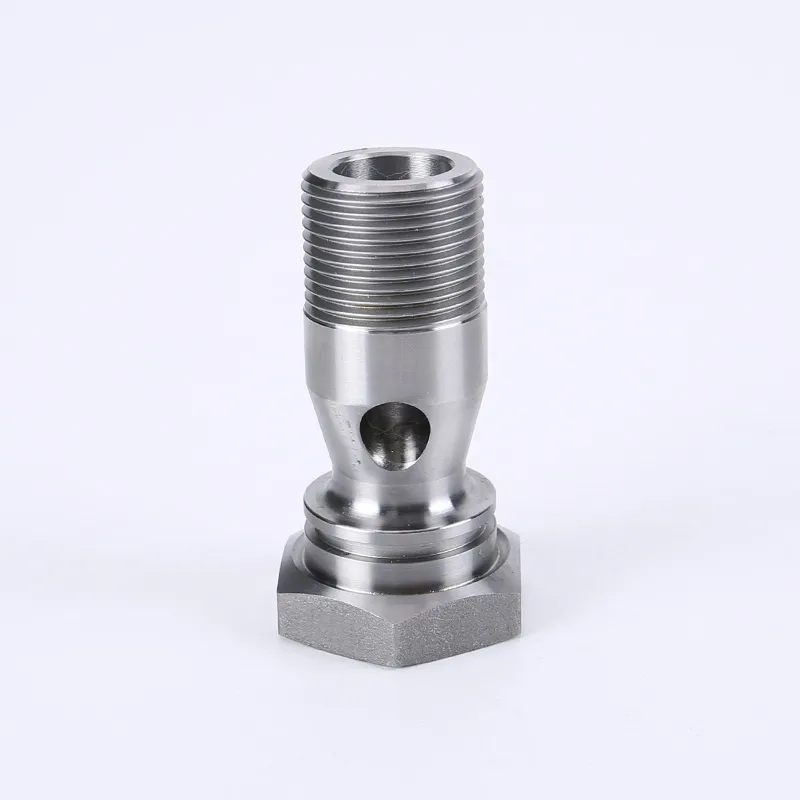Understanding Hydraulic Bolts: What They Are and How They Work
2024-10-24
In the realm of engineering and construction, hydraulic bolts have gained recognition for their ability to provide secure and reliable fastening solutions. These specialized fasteners are essential in high-stress applications where traditional bolts may fail. In this blog, we will explore what hydraulic bolts are, how they work, and their advantages in various industries.
What is a Hydraulic Bolt?
A hydraulic bolt is a type of bolt designed to be tightened using hydraulic pressure rather than traditional torque methods. This system allows for precise control over the amount of tension applied to the bolt, making it ideal for applications that require high levels of clamping force and reliability. Hydraulic bolts are commonly used in heavy machinery, construction, and infrastructure projects.
How Do Hydraulic Bolts Work?
The operation of hydraulic bolts involves a hydraulic cylinder integrated into the bolt assembly. Here’s a breakdown of the process:
1. Preparation: The hydraulic bolt is installed in the joint or connection, with the bolt shaft threaded through the materials being fastened together.
2. Hydraulic Pressure Application: A hydraulic pump is connected to the bolt. When activated, the pump generates pressure that forces hydraulic fluid into the cylinder within the bolt.
3. Tensioning: As hydraulic fluid enters the cylinder, it expands and applies tension to the bolt, effectively stretching it. This stretching creates a clamping force that secures the connected components.
4. Maintaining Tension: Once the desired tension is reached, the hydraulic system is maintained, keeping the bolt securely fastened. This method reduces the risk of loosening due to vibrations or thermal expansion.
Advantages of Hydraulic Bolts
1. Precision: Hydraulic bolts allow for precise control over tension, ensuring consistent clamping force across multiple bolts in a connection. This reduces the risk of joint failure due to uneven tension distribution.
2. High Load Capacity: These bolts can withstand high levels of stress and load, making them suitable for heavy-duty applications such as structural connections in bridges, wind turbines, and industrial machinery.
3. Reduced Risk of Damage: Traditional tightening methods can lead to over-torquing, which may damage components or lead to bolt failure. Hydraulic bolts minimize this risk by providing controlled tensioning.
4. Ease of Use: The hydraulic system allows for quick and efficient tightening of bolts, making the installation process faster and more convenient, especially in challenging or confined spaces.
5. Resistance to Loosening: Once properly tightened, hydraulic bolts are less likely to loosen over time due to vibrations or thermal cycling, enhancing the reliability of critical connections.
Applications of Hydraulic Bolts
- Construction: Used in structural steel connections and heavy machinery assembly, hydraulic bolts provide secure fastening for critical applications.
- Oil and Gas: Hydraulic bolts are often used in pipelines and drilling equipment, where high-stress conditions require reliable fastening solutions.
- Aerospace: In aircraft assembly, hydraulic bolts ensure that critical components are securely fastened to withstand the forces encountered during flight.
- Wind Energy: These bolts are commonly used in wind turbine installations, where they help secure large components against extreme weather conditions.
Hydraulic bolts are an essential tool in industries that require reliable and high-performance fastening solutions. With their ability to provide precise tensioning and high load capacity, these bolts are a game-changer in applications where traditional fastening methods may fall short. As industries continue to evolve and demand greater efficiency and reliability, hydraulic bolts will undoubtedly play a significant role in the future of engineering and construction.



